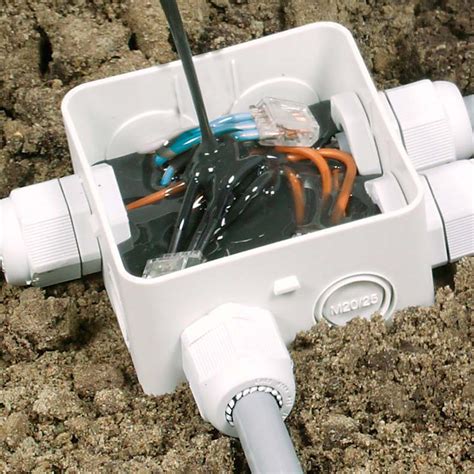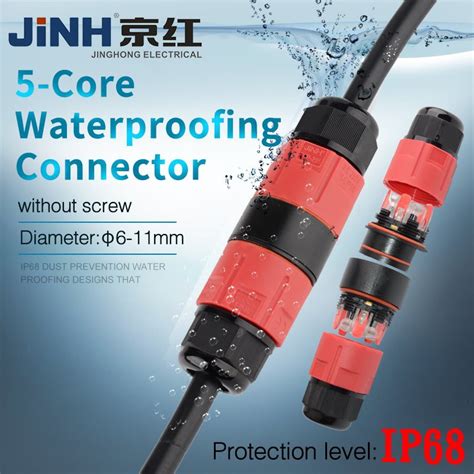electrical junction box in in basement Yes, you can put an electrical junction box in your basement. Electrical junction boxes are commonly used to protect and enclose electrical . CNC machines are machine tools that cut or move material as programmed on the controller, as described above. The type of cutting can vary from plasma cutting to laser cutting, milling, routing, and lathes. CNC machines can even pick up and move items on an assembly line.
0 · waterproof underground electrical pull box
1 · waterproof underground electrical boxes
2 · underground wiring problems and solutions
3 · underground waterproof electrical junction box
4 · underground waterproof cable junction boxes
5 · underground water tight electrical box
6 · underground junction boxes watertight
7 · underground electrical wiring installation instructions
The standard size of the corrugated sheets varies from company to company. If you are buying from a manufacturer the corrugated metal will be made to whatever length that you need. If you purchase corrugated roofing from a distributor they will normally have standard lengths in stock.
Yes, you can put an electrical junction box in your basement. Electrical junction boxes are commonly used to protect and enclose electrical .
I want to install a 15-amp AC receptacle in my basement between the ceiling joists. The basement's not finished so there's plenty of room to play around. Should I be installing a "new work" new plastic outlet box or a steel one?
A junction box provides a safe, code-compliant space for housing cable connections for outlets, switches, or splices. They prevent potential electrical shocks, and keep sparks from spreading to flammable surroundings.The maximum number of 90-degree bends shall not exceed four between junction boxes. . Yes, you can put an electrical junction box in your basement. Electrical junction boxes are commonly used to protect and enclose electrical connections, making them an essential part of any electrical system. Junction boxes protect electrical wires from damage, prevent shocks, and stop sparks from igniting flammable material nearby. To install one, you’ll need to strip the ends off all the wires that will be in the box.
waterproof underground electrical pull box
I want to install a 15-amp AC receptacle in my basement between the ceiling joists. The basement's not finished so there's plenty of room to play around. Should I be installing a "new work" new plastic outlet box or a steel one?
A junction box provides a safe, code-compliant space for housing cable connections for outlets, switches, or splices. They prevent potential electrical shocks, and keep sparks from spreading to flammable surroundings.The maximum number of 90-degree bends shall not exceed four between junction boxes. Bushings shall be provided where entering a box, fitting or enclosure unless the box or fitting is designed to afford equivalent protection.
Consider the location of the junction box in your basement. It should be easily accessible for inspection and maintenance purposes. Additionally, ensure that there is sufficient space around the junction box to accommodate connections and .Junction boxes, with blank covers are allowed above a suspended ceiling as it is not considered a closed space. The wires that are loose and wirenuted need to be put in a j-box. Also, clamps need to be used at each wire going into a j-box.
waterproof underground electrical boxes
A junction box is not a special type of box but any standard electrical box used to enclose wire splices. The most commonly used box for junctions is a 4-inch square box (either metal or strong plastic), which offers ample space for making wire connections with multiple wires or .
One essential component of DIY wiring is the junction box, a crucial element that ensures safe electrical connections. In this blog, we’ll guide you through the process of safely installing and using junction boxes, providing valuable insights for DIY enthusiasts. A junction box is a standard electrical box that contains two or more spliced electrical cables. The box must have a removable, accessible cover. Junction boxes can be placed along electrical conduit, too. Yes, you can put an electrical junction box in your basement. Electrical junction boxes are commonly used to protect and enclose electrical connections, making them an essential part of any electrical system. Junction boxes protect electrical wires from damage, prevent shocks, and stop sparks from igniting flammable material nearby. To install one, you’ll need to strip the ends off all the wires that will be in the box.
underground wiring problems and solutions
I want to install a 15-amp AC receptacle in my basement between the ceiling joists. The basement's not finished so there's plenty of room to play around. Should I be installing a "new work" new plastic outlet box or a steel one? A junction box provides a safe, code-compliant space for housing cable connections for outlets, switches, or splices. They prevent potential electrical shocks, and keep sparks from spreading to flammable surroundings.
The maximum number of 90-degree bends shall not exceed four between junction boxes. Bushings shall be provided where entering a box, fitting or enclosure unless the box or fitting is designed to afford equivalent protection. Consider the location of the junction box in your basement. It should be easily accessible for inspection and maintenance purposes. Additionally, ensure that there is sufficient space around the junction box to accommodate connections and .
Junction boxes, with blank covers are allowed above a suspended ceiling as it is not considered a closed space. The wires that are loose and wirenuted need to be put in a j-box. Also, clamps need to be used at each wire going into a j-box.
A junction box is not a special type of box but any standard electrical box used to enclose wire splices. The most commonly used box for junctions is a 4-inch square box (either metal or strong plastic), which offers ample space for making wire connections with multiple wires or . One essential component of DIY wiring is the junction box, a crucial element that ensures safe electrical connections. In this blog, we’ll guide you through the process of safely installing and using junction boxes, providing valuable insights for DIY enthusiasts.

underground waterproof electrical junction box

underground waterproof cable junction boxes
underground water tight electrical box
The steel wire used in Metal Inert Gas Welding is always copper coated, both the easier to from and lack of corrosion are valid reasons, that being said stainless or aluminum MIG wire is uncoated. Steel fasteners for drawn arc welding are also usually copper coated.
electrical junction box in in basement|underground electrical wiring installation instructions